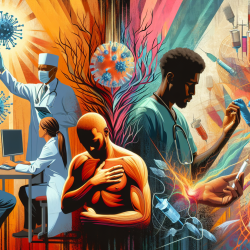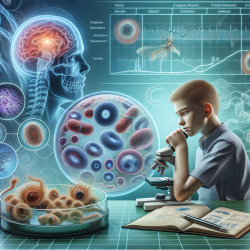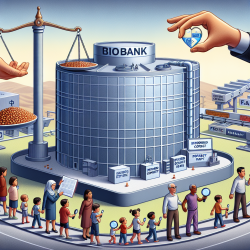Introduction
The COVID-19 pandemic has been a defining moment in global health, impacting millions of lives worldwide. As we navigate through this crisis, vaccination remains our most effective tool in combating the virus. However, vaccine hesitancy, fueled by psychosomatic symptoms and nocebo effects, poses a significant challenge to achieving widespread immunization. This blog aims to explore the findings of the research article "Role of Psychosomatic Symptoms in COVID-19 Vaccine Hesitancy" and provide practitioners with insights to improve their skills and encourage further research.
Understanding Psychosomatic Symptoms and Nocebo Effects
Psychosomatic symptoms are physical symptoms that arise or worsen due to psychological factors such as stress, anxiety, and depression. These symptoms can manifest as headaches, fatigue, and myalgia, which are commonly reported after COVID-19 vaccination. The nocebo effect, on the other hand, refers to negative effects experienced due to negative expectations about a treatment, such as a vaccine.
The research highlights that a significant proportion of adverse effects following COVID-19 vaccination are attributed to psychosomatic and nocebo effects rather than the vaccine itself. Understanding these effects is crucial for practitioners to address vaccine hesitancy effectively.
Strategies to Reduce Vaccine Hesitancy
- Education and Communication: Providing clear and accurate information about vaccine side effects, including their transient nature, can help reduce anxiety and negative expectations. Utilizing positive framing, such as emphasizing the majority of people who do not experience side effects, can also mitigate nocebo effects.
- Addressing Negative Expectations: Educating patients about the nocebo effect and its potential impact on perceived side effects can empower them to manage their expectations better.
- Individualized Care: Tailoring communication to address individual concerns and providing reassurance can help reduce stress and anxiety related to vaccination.
- Creating Supportive Environments: Vaccination clinics should consider individual rooms or cubicles to prevent the spread of psychogenic stress reactions, especially in group settings.
Encouraging Further Research
The interplay between psychosomatic symptoms, nocebo effects, and vaccine hesitancy is complex and warrants further investigation. Practitioners are encouraged to explore this area of research to develop more effective strategies for addressing vaccine hesitancy. By understanding the psychological factors influencing vaccine acceptance, we can enhance our efforts to achieve higher vaccination rates and better public health outcomes.
Conclusion
Psychosomatic symptoms and nocebo effects play a critical role in COVID-19 vaccine hesitancy. By educating the public and addressing these psychological factors, we can reduce vaccine-related anxiety and improve vaccine acceptance. Practitioners are encouraged to implement the strategies discussed and engage in further research to create positive change in vaccination efforts.
To read the original research paper, please follow this link: Role of Psychosomatic Symptoms in COVID-19 Vaccine Hesitancy.










